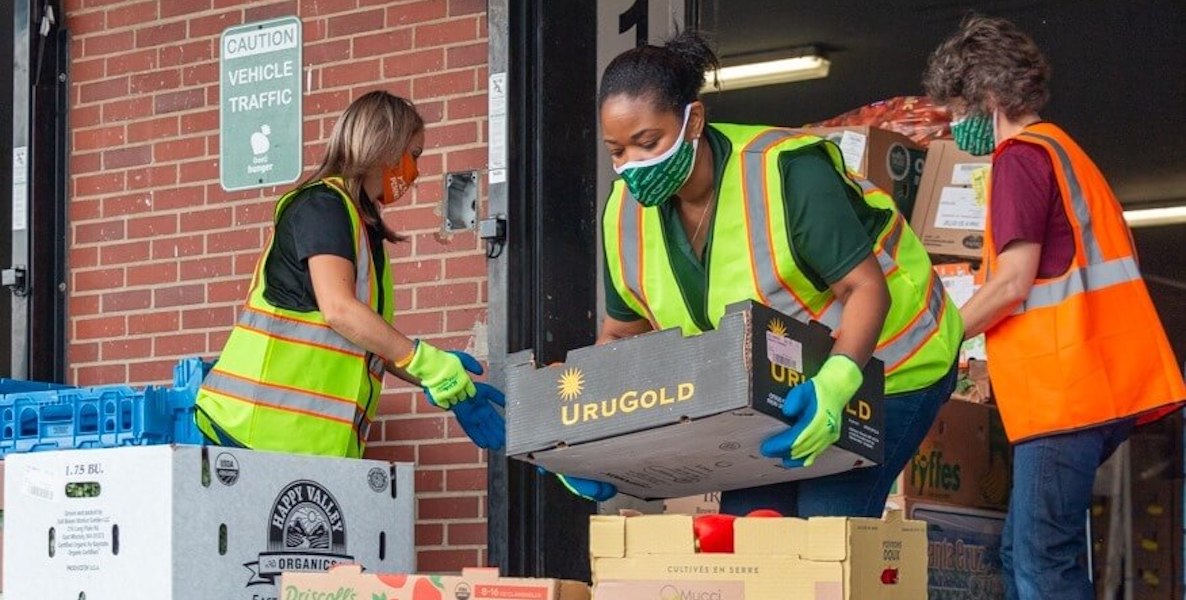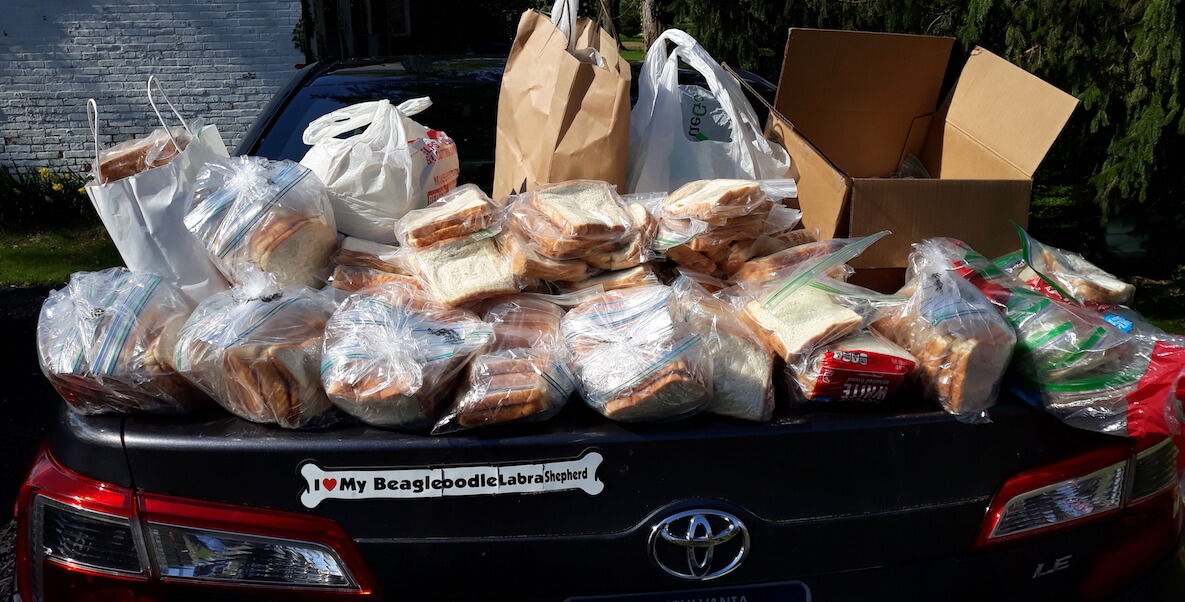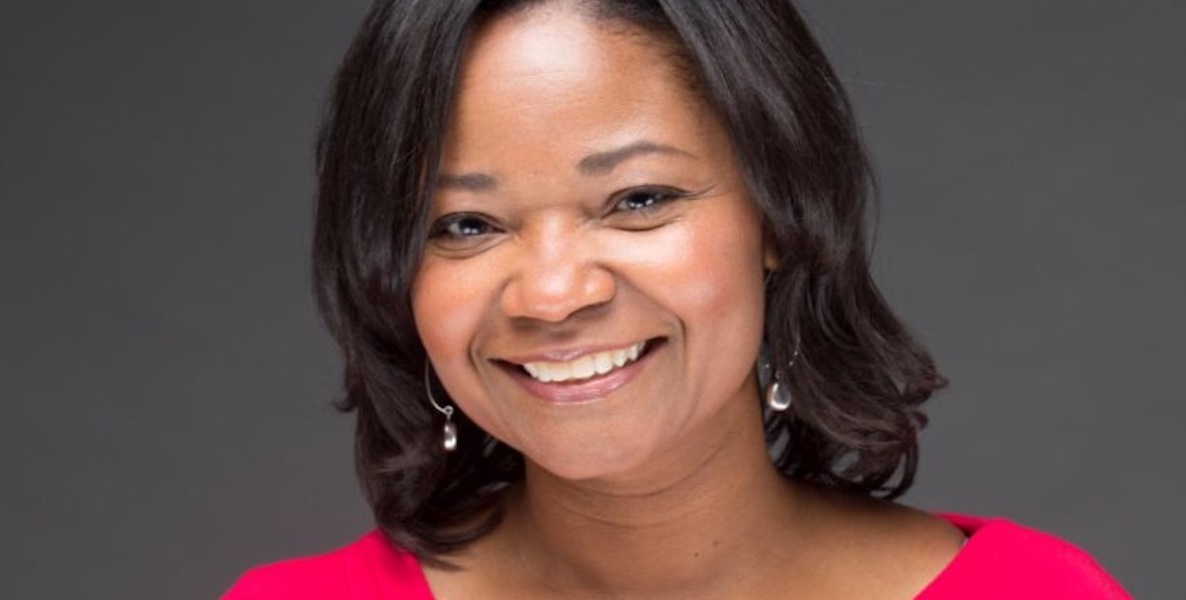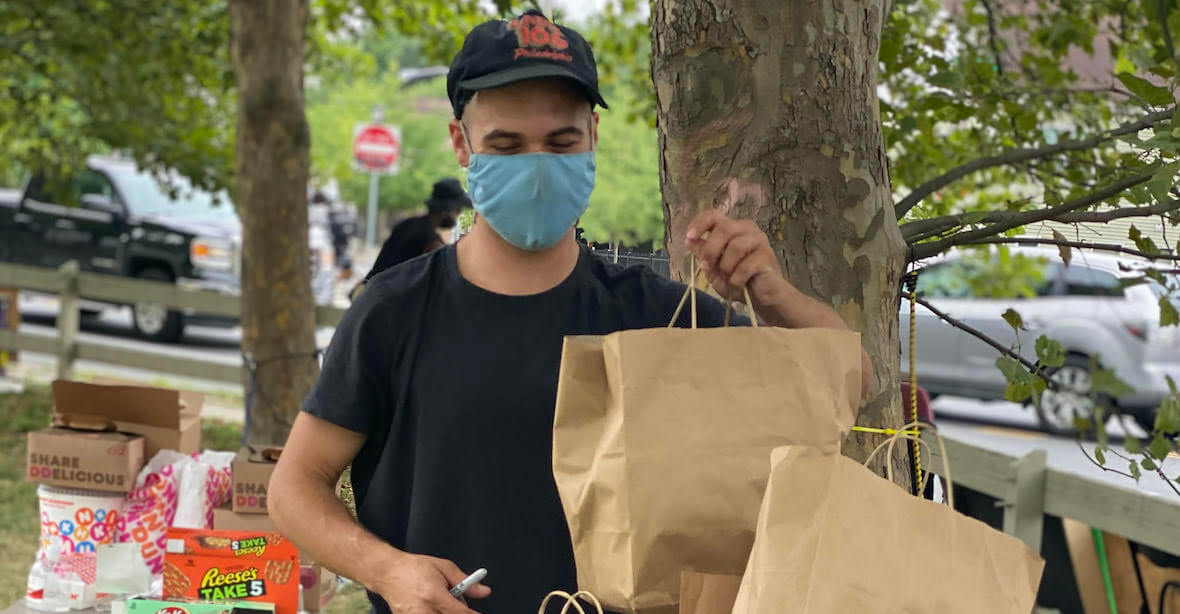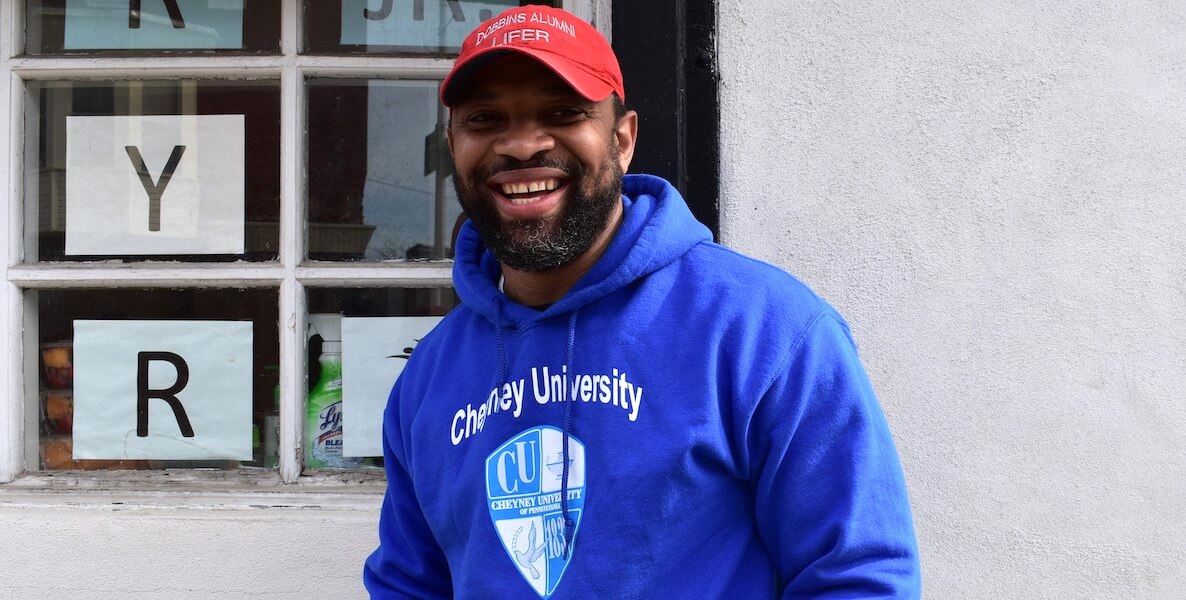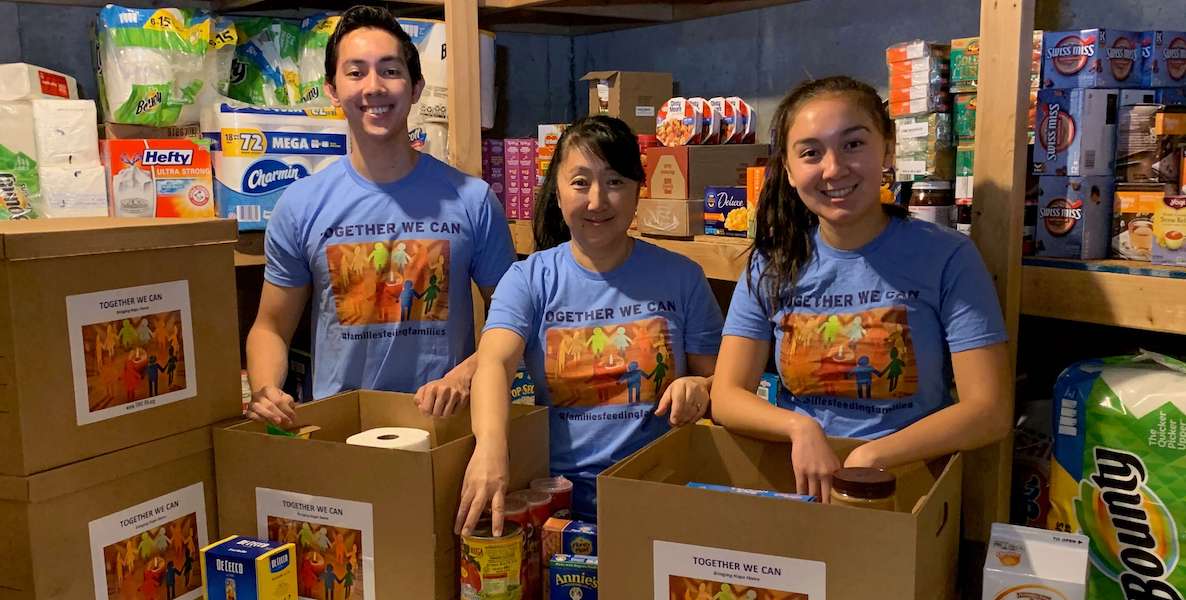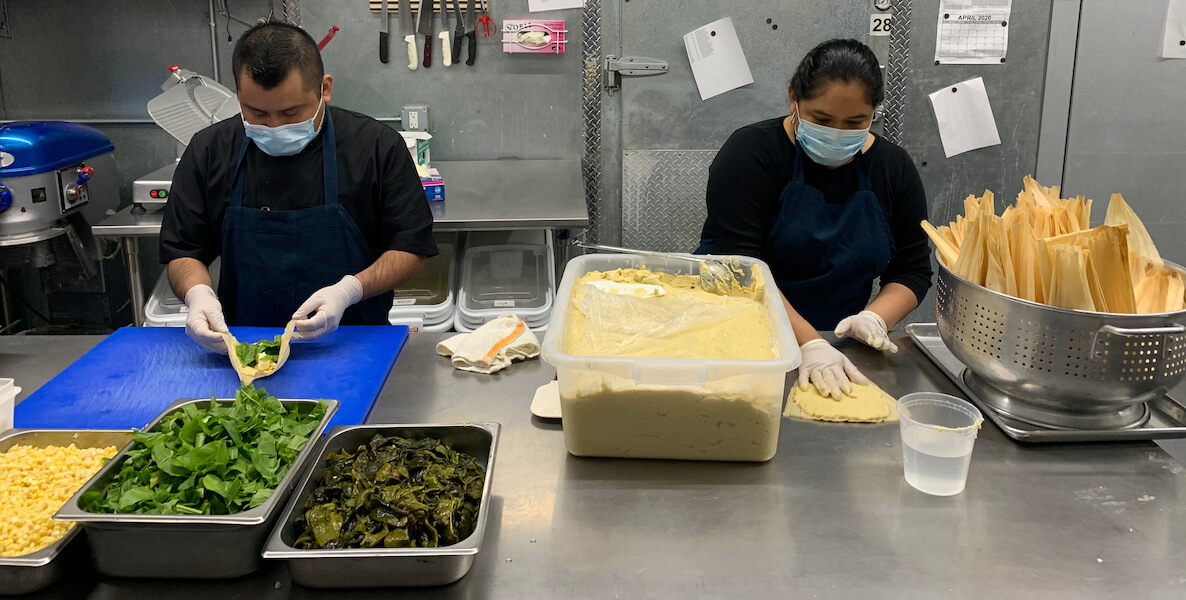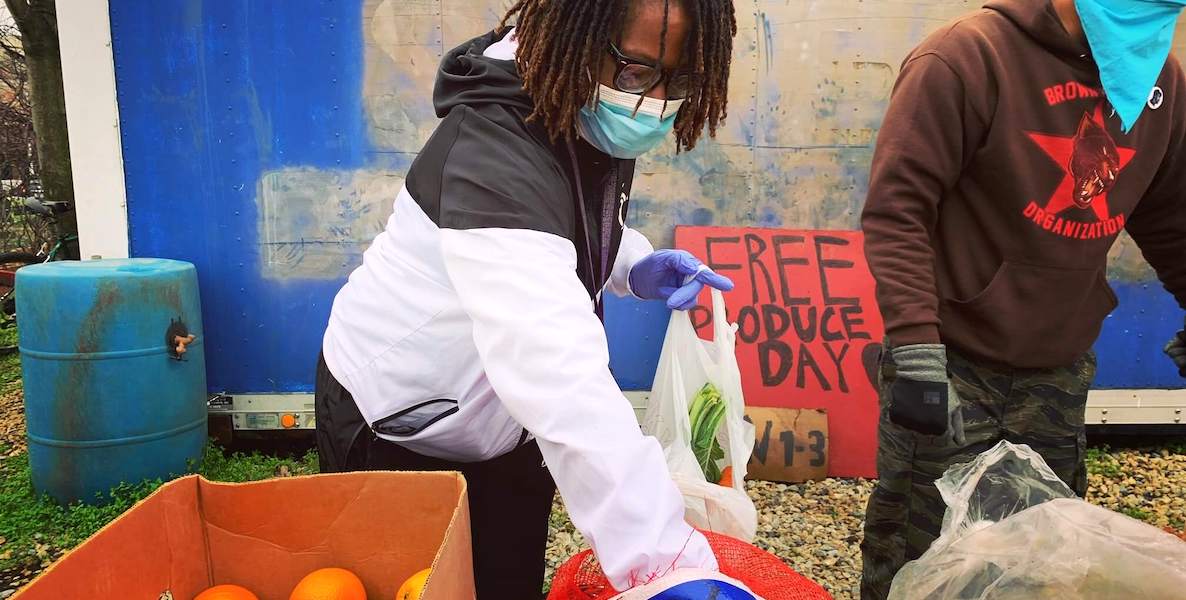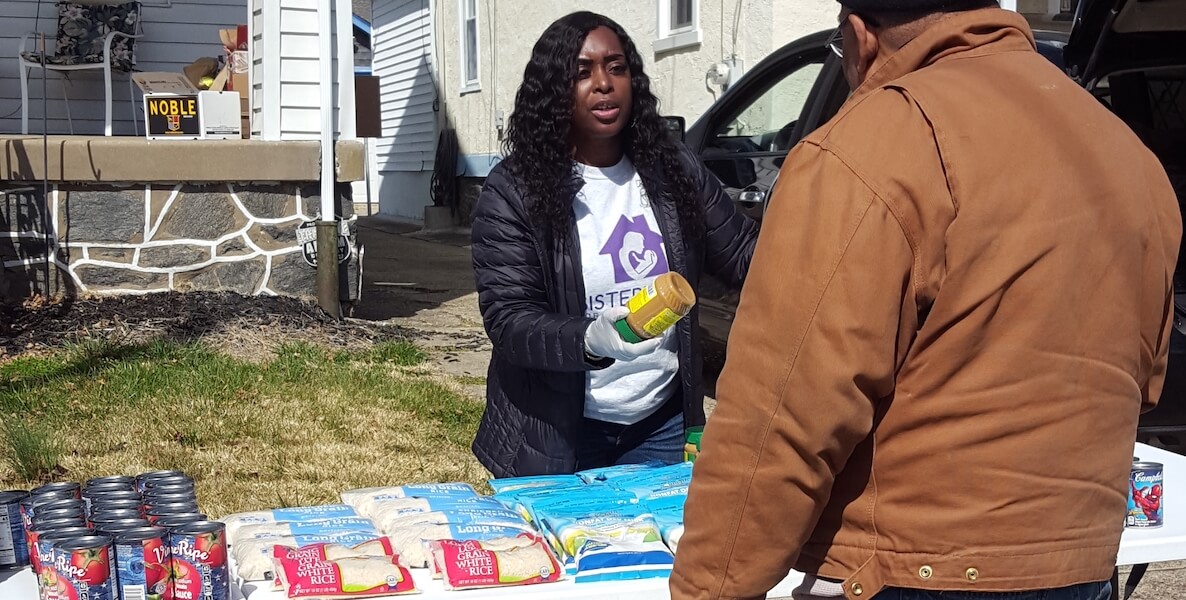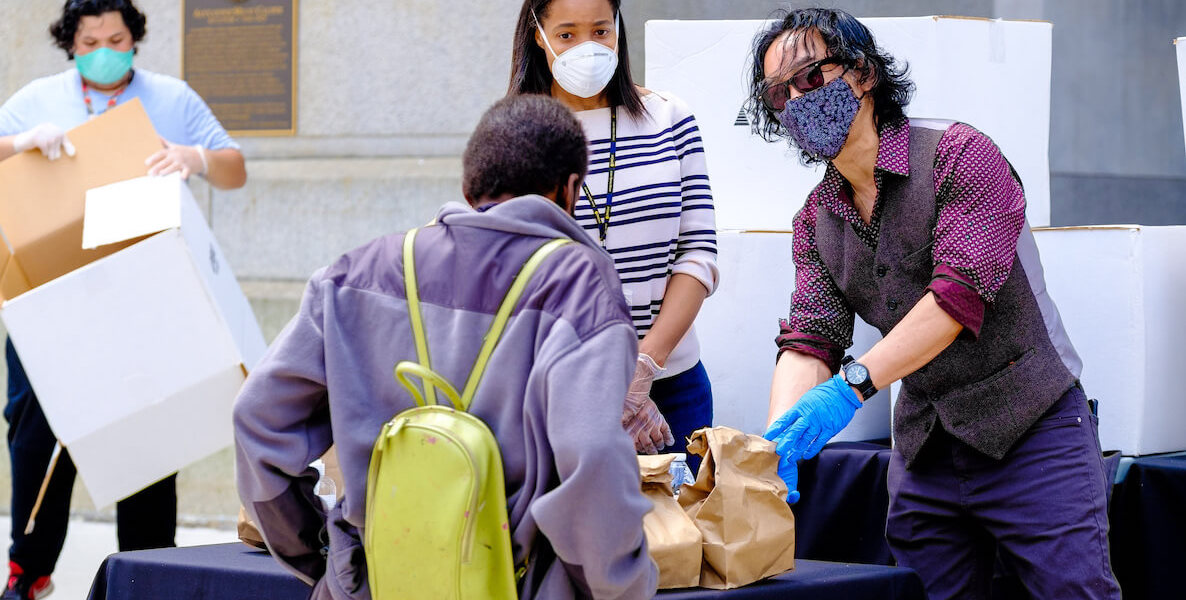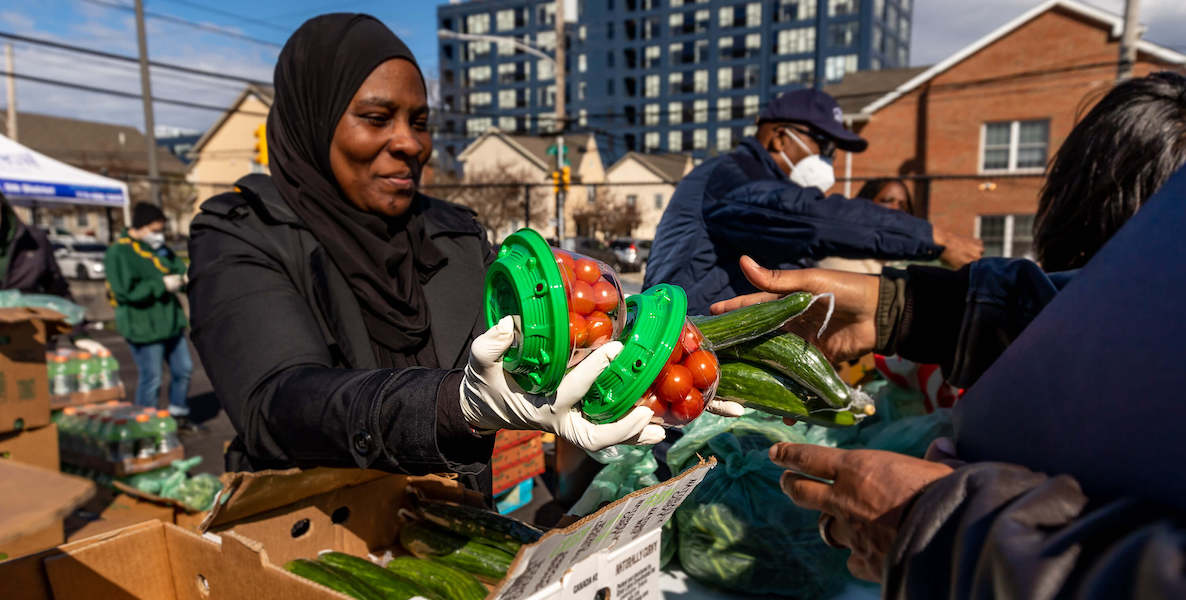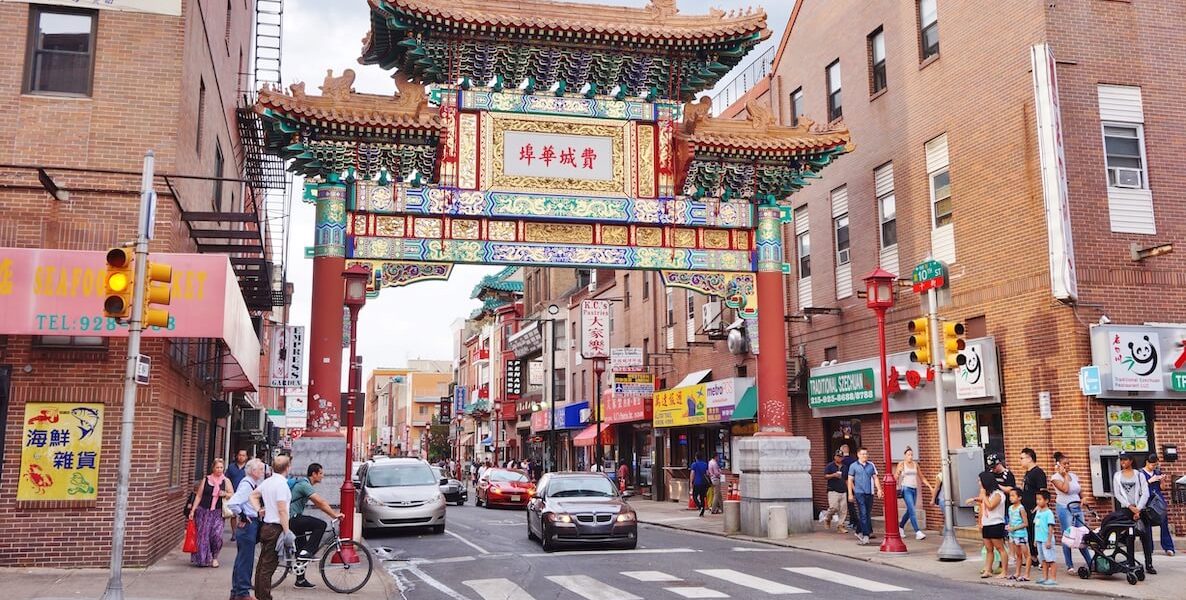Throughout the spring, as thousands of people every day received meals and boxes of food from SEAMAAC, the South Philly-based nonprofit that since 1984 has served immigrants and those in need, they were apt to find not just a variety of healthy and delicious foods.
![]() Along with the veggies and tofu and burritos, each box also included pamphlets for the census, and nonpartisan information about voter registration and absentee ballots. This wasn’t as divergent as it might seem. In fact, it’s all part of SEAMAAC’s larger mission, to better serve its constituents by helping them better engage with their city.
Along with the veggies and tofu and burritos, each box also included pamphlets for the census, and nonpartisan information about voter registration and absentee ballots. This wasn’t as divergent as it might seem. In fact, it’s all part of SEAMAAC’s larger mission, to better serve its constituents by helping them better engage with their city.
To SEAMAAC Executive Director Thoai Nguyen (pictured above), civics and food naturally overlap: Food insecurity, he says, is a social justice issue. Voting and the census is part of that. And the message worked: Nguyen’s team had a 100-percent success rate with their turf, meaning everyone they encountered returned their census.
And whereas the national average for “getting out the vote” work is 25 to 30 percent, 70-plus percent of the voters SEAMAAC reaches via phone, text, and door-knocking (before Covid) actually cast a ballot on Election Day.
“We know these families, we do case management with them, we’ve seen these young people, we’ve known them for years and years and years, so we know their home condition,” Nguyen says. “And for us to say, you know what, everybody’s closed down, so we might as well close down? That’s unacceptable.”
“While the coronavirus pandemic has tested the limits of our fidelity to [our] mission, we have responded by refocusing much of our resources to support those most affected by the pandemic—the poor, working class, people of color, immigrants and women and children,” Nguyen says. “Our mission is really about allowing marginalized communities to live in the U.S. with joy and dignity. But you can’t just hope for things to happen—you have to work at it.”
Rising to the Challenge in Pandemic Times
SEAMAAC was in the midst of its census and voter information push in March, when the pandemic hit Philly and social services organizations all over town faced an unprecedented amount of need—with an unprecedented amount of uncertainty about how to meet it.
This was no less true for SEAMAAC. There were the staff challenges—how do you serve the community when, for safety reasons, you can’t have your whole staff gathering in-person?
There was the complex logistics of getting food to hungry Philadelphians: What food-relief partner could they count on when so many are competing for resources? How could they get the city to support their efforts?
And there was the overriding concern about not abandoning their existing work: How could they pivot and still provide for the 300 refugee elders they support, and the women and children in their domestic violence programs and family shelters? How could they keep pushing their voter registration, census and other civic engagement efforts?
That SEAMAAC has been able to rise to the challenge is a reflection of the organization’s foresight, its relationship-building and Nguyen’s say-yes mentality.
“I’m a man of science, so even a month before Governor Wolf declared a pandemic, we were scaling down,” Nguyen says. Not getting the resources they needed from Philabundance, they instead paired up with Share Food Program. They connected with the Office of Children and Families, led by Cynthia Figueroa, and the Office of Homeless Services, led by Liz Hersh.
They kept a core staff of just five people, including Nguyen, reporting to work, but kept their staff, who speak 22 languages, available by phone for the community; they partnered with Broad Street Ministry and expanded to distribute from their own HQ as well as South Philly Barbacoa and Key School.
Far-Reaching Impact
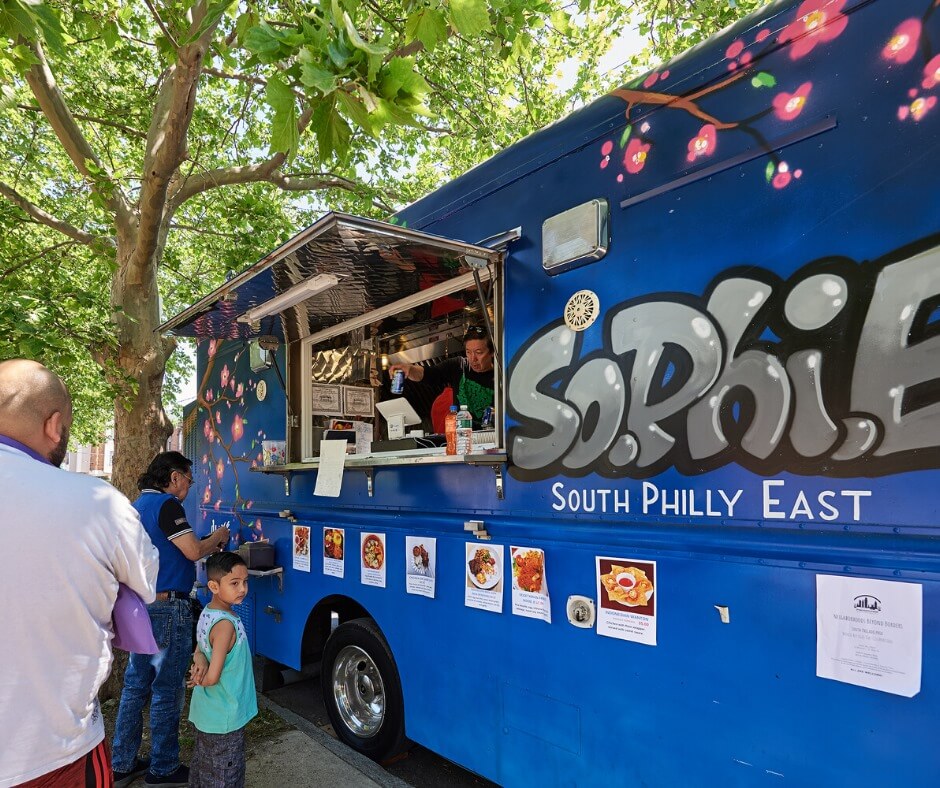
Since March 27, SEAMAAC has addressed more than 150,000 instances of hunger, distributing more than 1,000 meals and food boxes a day since mid-May.
They also partnered with Philly FIGHT to do more than 400 free Covid tests. They have an art display by elders. They’ve continued to offer their signature youth program, Hip Hop Heritage, to 50 families, and have distributed art kits to all of them.
In March they launched an initiative to support small businesses in South Philly—to date they have helped bring almost $500,000 of funds to small family- and immigrant-owned businesses in South Philadelphia, including the purchase of meals for the Step Up to the Plate Program, SEAMAAC’s gift certificate program, and support to help these businesses receive various Covid-19 small business relief funding.
“I’ve been hearing a lot of people saying, ‘We’re all in this together,’ and I’m sorry, but we’re not,” Nguyen says. “There are people that are hoarding, there are people that have basically shut their doors. Right now we’re not all in this together—but we should be.”
Their SoPhiE (or South Philly East) Food Truck is a “Business Incubator” program, wherein SEAMAAC trains and helps to certify entrepreneurs who want to start a business but have no capital. “SoPhiE allows the food truck to be used for free by qualified and interested entrepreneurs without any investment of capital,” Nguyen explains.
To date, they’ve hosted 13 chef-entrepreneurs and four have gone on to have their own successful businesses in the food and catering industry in Philadelphia.
“A lot of folks think that SEAMAAC only helps the Asian community, but they help so many people,” says Steve Preston, chief program officer at Share Food Program, which partners with SEAMAAC on the food distribution. “When you go through their line, you see how diverse it is, and that really speaks to the reach that SEAMAAC has. They’re getting out there and helping every single community, regardless of who they are.”
The Roots
The history of SEAMAAC goes back to the early ’80s, when five organizations serving the influx of immigrants from Southeast Asia banded together to pool resources. They provided essential services to people coming from war-torn Asian nations, from financial assistance to literacy programs.
Then came a wave of immigrants from elsewhere around the world: Yugoslavia and West Africa, South and Central America.
Nguyen, whose first name is pronounced “Toy,” came with his family to South Philly from Vietnam in 1975, when he was nine. As an adult, he spent nearly two decades working as a community organizer throughout the U.S. and in Africa, Asia, and many countries in Eastern, Central, and Western Europe, but he considers Philadelphia his home. And when he took the reins at SEAMAAC, he was determined to make this city feel like home for people of all backgrounds.
“Philadelphia is known as a city of neighborhoods, but really we’re a city of tribes, and sometimes those tribes don’t really get along,” he says.
The perennial clash was a mystery for Nguyen. “That’s the beautiful thing about the city of Philadelphia, the potential to celebrate diversity. I wanted to formally allow SEAMAAC to recognize Eastern Europeans, Africans and Latinx folks as part of our community—not just tangential to our mission, but integral.”
The shift to embrace cultures began with SEAMAAC’s after-school programs.
One afternoon early in his tenure, Nguyen visited the after-school program, which at the time exclusively served Asian children and was run exclusively by Asian staff, except for one Liberian staff member. “I saw a young, Vietnamese student come in with his Black friend, an African-American student, and when they entered, our staff basically said, ‘You know, we welcome you, but we really don’t serve you,’ to the Black kid. And I just felt that was totally wrong on so many levels, that I sought to change things across the organization.”
He immediately opened the doors to anyone who wanted service through SEAMAAC. In doing so, he also opened the door for more diverse staffing. “A lot of our mission here at SEAMAAC is, when we serve diverse communities, we want our staff, our people, to be authentic, to have an authentic understanding of each of the communities we serve,” he says.
![]() By the summer of 2007, he introduced a summer program centered around his beloved hip-hop, offering DJ-ing, breakdancing, graffiti art, jazz and spoken-word poetry. Skeptics questioned the merits of hip-hop as an art form or educational vehicle. But Nguyen’s instincts were right: “That summer, we were mobbed with the most diverse group of families we had ever seen,” he says. SEAMAAC formerly stood for “Southeast Asian Mutual Assistance Associations Coalition, Inc.”; but with their expanded mission, vision and scope of services to serve just about everyone, that no longer made sense—they now only refer to themselves as SEAMAAC, Inc.
By the summer of 2007, he introduced a summer program centered around his beloved hip-hop, offering DJ-ing, breakdancing, graffiti art, jazz and spoken-word poetry. Skeptics questioned the merits of hip-hop as an art form or educational vehicle. But Nguyen’s instincts were right: “That summer, we were mobbed with the most diverse group of families we had ever seen,” he says. SEAMAAC formerly stood for “Southeast Asian Mutual Assistance Associations Coalition, Inc.”; but with their expanded mission, vision and scope of services to serve just about everyone, that no longer made sense—they now only refer to themselves as SEAMAAC, Inc.
Now, SEAMAAC is on year 13 of their continually popular Hip Hop Heritage program; at its height, it served 350 kids, despite receiving payment from only a fraction of them. “We won’t turn anyone away,” Nguyen insists.
He hires high-quality teaching artists, and pays them 50 percent over market-rate for other after school programs. “When you love people and you respect them for what they do, their creative process, you get that stuff back,” he says of the investment his artists pour back into the program.
They’ve been able to cover the costs of programming because they were both, as Nguyen says, “in a great financial position when the country went into quarantine in March 2020,” and received an infusion of funds from longtime supporters and foundations, including their own fundraising campaign to support refugee elders and vulnerable families.
At least one City department allowed them to repurpose some funds towards staffing for the hunger relief efforts for the months of April through June, but that stopped as of July 1. Since the beginning of the pandemic, SEAMAAC has not laid off any staff—instead, they have added more than 15 full-time staff to their team, with full health benefits immediately accessible on their first day of work.
And now the staff, which had for so long been predominantly Asian, is more than 55-percent African-American or people of African descent. The organization serves Burmese, Butanese and Nepali refugees; staff speak those languages, and over 20 others.
Under Nguyen’s leadership, SEAMAAC has grown to include not only the summer hip-hop programs, but a robust roster of health services, ESL and literacy support, domestic violence services and more.
As Covid-19 struck the SEAMAAC community, Nguyen and his team rose to the challenge with the same approach they brought to Hip Hop Heritage back in 2007: creatively, holistically, and with open arms.
“These Are Heroes”
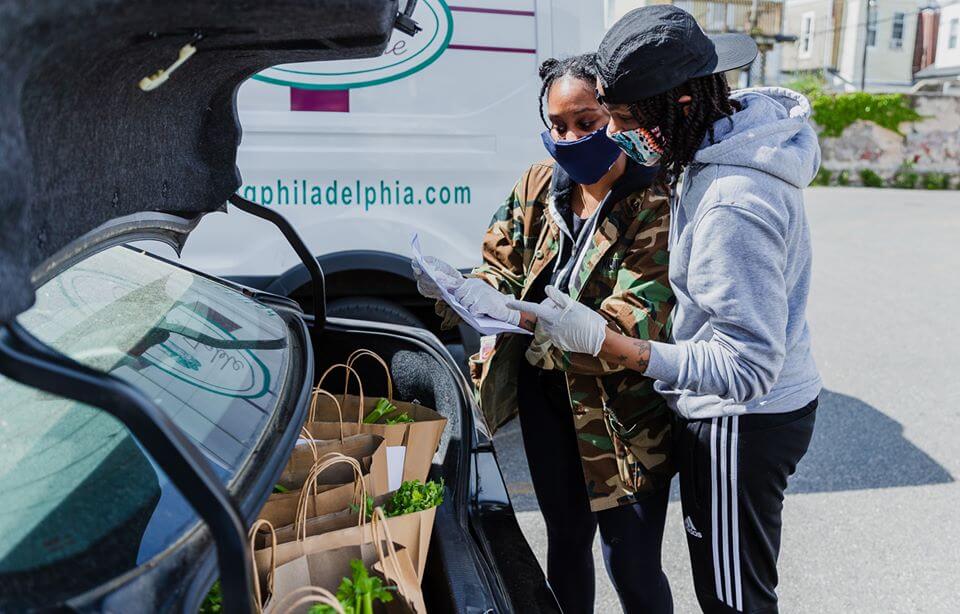
The people behind the scenes, Nguyen says, enabled SEAMAAC to be the only South Philly nonprofit that started and has continued operating throughout the entire pandemic. “These are heroes,” Nguyen, who doesn’t throw the word “hero” around lightly, says.
“If you know that these families have a need and you do nothing about it, it’s unconscionable,” Nguyen says. “We know these families, we do case management with them, we’ve seen these young people, we’ve known them for years and years and years, so we know their home condition. And for us to say, you know what, everybody’s closed down, so we might as well close down? That’s unacceptable.”
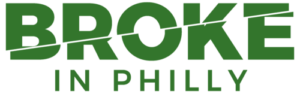 As we approach the sixth month of the pandemic, Nguyen says that a few partners that have been collaborating with them are scaling down their operations, or stopping altogether—but SEAMAAC is scaling up. “We project that the impact of the pandemic on marginalized communities will be protracted and will affect their health and livelihood for many years,” he says.
As we approach the sixth month of the pandemic, Nguyen says that a few partners that have been collaborating with them are scaling down their operations, or stopping altogether—but SEAMAAC is scaling up. “We project that the impact of the pandemic on marginalized communities will be protracted and will affect their health and livelihood for many years,” he says.
Greg Hammond, a Philly native, heard about SEAMAAC’s food distribution through a friend. Prior to the pandemic, he’d never received food from an organization, but since late March he’s been going every day for lunches, and on Mondays, Tuesdays and Thursdays for boxed food offerings, to get provisions for himself and his 79-year-old mother.
Equally important, he adds, is that the food is good. “It’s been very diverse, from pasta and chicken to tofu and burritos and various ethnic foods. My mother eats it all without complaint.”
Hammond says that SEAMAAC has taken the tragedy of the current administration’s failure to adequately address the pandemic and turned it into an opportunity for the community to come together.
“Most people who go to a food bank sort of feel ashamed. And yet Thoai’s staff is very polite, they’re very bubbly, they’re very friendly. There’s no shame about anything,” he says. “I’m African-American and I’ve lived in different countries for college and grad school, and I really enjoy the diversity of the staff and the community that SEAMAAC serves. People speak Cambodian and Vietnamese and French, and everyone is so friendly.”
That same spirit doesn’t always come across in return, unfortunately. Nguyen says one of the most disappointing aspects of SEAMAAC’s hunger-relief efforts have been the consistent anti-Asian sentiments his team faces during the course of their work to feed people.
![]() “The assailants are primarily white people in line to receive food, while many of our volunteers are Caucasian, and a significant number of our staff and leadership are Asian=American, and [there’s a] cognitive dissonance that happens when white folks in the food line or as passersby verbally assault Asian staff and volunteers during our efforts,” he says.
“The assailants are primarily white people in line to receive food, while many of our volunteers are Caucasian, and a significant number of our staff and leadership are Asian=American, and [there’s a] cognitive dissonance that happens when white folks in the food line or as passersby verbally assault Asian staff and volunteers during our efforts,” he says.
Since March, he has personally had to confront people during three separate incidents of hate speech. What he asks of Philly is for people to stop being afraid of change.
“I’ve been hearing a lot of people saying, ‘We’re all in this together,’ and I’m sorry, I beg your pardon, but we’re not. There are people that are hoarding, there are people that have basically shut their doors. Right now we’re not all in this together—but we should be.”
Header photo: SEAMAAC Executive Director Thoai Nguyen hands out food at City Hall during Covid-19

